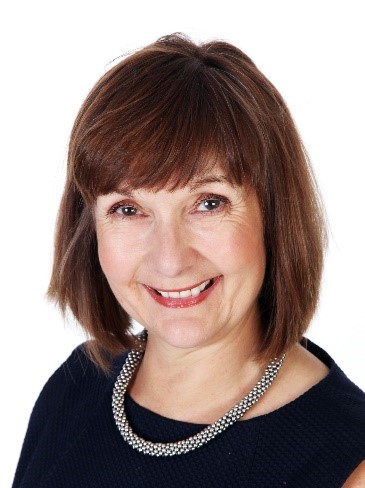This discussion first appeared in Perspectives on Assessment, the Cambridge Assessment Network member newsletter, which features key voices from the assessment community along with many other member-exclusive content.
How did different organisations offering assessments respond to the pandemic? and what could that tell us about the future of assessment delivery? Cambridge Assessment Network spoke with Sarah Corcoran, Director of e-Assessment Transformation at the Association of Chartered Certified Accountants (ACCA) about moving to Computer-Based Assessment, and how learning and assessment in her industry is changing in relation to technology drivers.
Could you tell us about your role at ACCA?
 "As Director of eAssessment Transformation, I am part of a team considering how learning and assessment is changing, especially in relation to technology drivers, and how ACCA should change our approach to ensure that our qualification and mode of delivery remains current and, where possible and relevant, cutting edge."
"As Director of eAssessment Transformation, I am part of a team considering how learning and assessment is changing, especially in relation to technology drivers, and how ACCA should change our approach to ensure that our qualification and mode of delivery remains current and, where possible and relevant, cutting edge."
How has the pandemic and the move to remote learning shifted your approach to assessment at ACCA?
"Like a lot of organisations, when the pandemic struck, we were very keen to support our students in helping them to continue to progress through our qualification by continuing to take exams. Fortunately, we’d spent the previous few years transferring testing in all of our global markets to computer-based exams, so it was a relatively straightforward next step to introduce a Remote Invigilation approach to sit on top of that. (Relatively straightforward but still a lot of hard work given the speed at which we implemented the change!)"
What lessons have you learnt from this that you could share with us?
"Maintaining validity, reliability and fairness are all principles we adopted when moving to Computer Based Assessment, along with additional principles such as integrity which we specifically wished to call out. For example, in the accounting world, validity in assessment can only be achieved by use of technology tools such as spreadsheeting and other accounting tools, as this reflects the practical world of an accountant, and as we introduced Remotely Invigilated exams, we have had a specific focus on integrity.
There’s currently much debate in the assessment industry about security and integrity of remotely invigilated exams and different high stakes testing organisations are taking different approaches to how and where to test in the future.
At ACCA, we wish to offer our students choice in the future so they can sit their exams in the location that works best for them and we are, therefore, working on implementing a comprehensive ‘Data Forensics’ programme to ensure continued integrity as we roll out remotely invigilated exams, in conjunction with centre-based testing, across the world."
You studied Educational Assessment Theory as part of your degree in Education, how has that learning informed your career and your more recent work at ACCA?
"Little did I know that this learning would lead me to an incredibly rewarding and fulfilling career in assessment, including at Cambridge Assessment where I worked on cutting edge and innovative aspects (we even won prizes for innovation) and a career which has enabled me to travel around the world both leading on and discussing latest innovations in the industry. Although I’ve recently been focusing on the more practical implementation aspects of new approaches to assessment, my heart is still in the educational theory behind potentially new and innovative approaches and I look back on my student days being thankful that the course developers had the foresight to include a good mix of foundational learning topics in the degree structure!"
What do you think about the future of online assessment? Any predictions or thoughts you might like to share based on your recent experiences?
"Maybe the real question is about the future of assessment rather than the future of online assessment, since technology is without a doubt here to stay. I’m now thinking more about the ‘future of learning and assessment’ and considering how these two aspects of a student’s development journey may be brought more closely together in the future. The pandemic certainly prompted a speeding up of both remote learning and remote assessment and it only seems like a natural extension that these two elements will somehow merge together in the future."